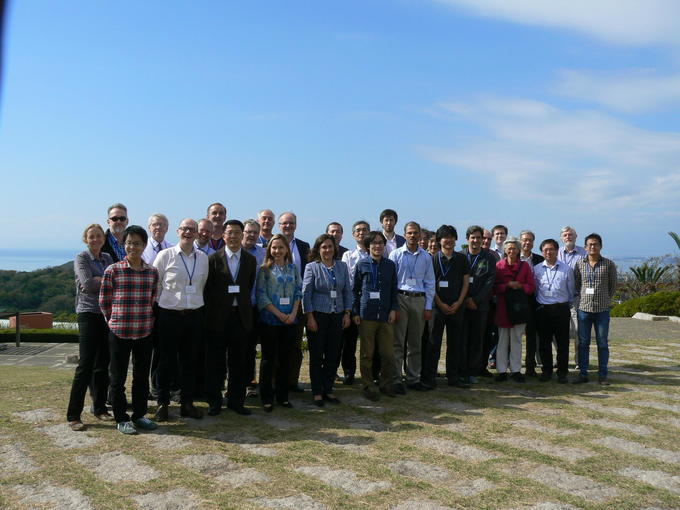NO.055 Science and Practice of Engineering Trustworthy Cyber-Physical Systems (TCPS)
October 27 - 30, 2014 (Check-in: October 26, 2014 )
Organizers
- Fuyuki Ishikawa
- National Institute of Informatics, Japan
- Alexander Romanovsky
- Newcastle University, UK

Overview
Description of the meeting
The society and human activities have been depending more and more on software-intensive systems. Novel system paradigms have been proposed and actively developed, notably Cyber-Physical Systems (CPS). Envisioned systems expands target entities and processes handled by the systems, stepping into more depth of human activities as well as real world entities. There are emerging application areas such as automated driving and smart cities, while existing areas are also evolving with richer features, such as aviation, railways, business process management, navigation systems,etc. Visions for CPS include or extend a lot of variations of system paradigms, Systems of Systems, Ubiquitous Computing, Ambient Intelligence, and so on. Obviously, the increased impact on human activities and real world entities lead to strong demand for trustworthy systems. On the other hand, resulting is unprecedented complexity, caused not only by expanded application features, but also by combined mechanisms for trustworthiness (self-adaptation, resilience, etc.). Construction and provision of trustworthy systems under complexity is absolutely the key challenge in system and software engineering.
The key to tackle the challenge is engineering methods for trustworthy systems. There is no doubt that foundational theories and technical components are essential as building blocks. Building blocks for trustworthy systems spread across verification algorithms, probabilistic analysis, fault models, self-adaptation mechanisms, and so on.
The challenge on complexity requires further, elaboration and integration of such blocks into engineering methods. Engineering methods define a systematic and reliable way for set of tasks to model, analyze and verify the system and its trustworthiness nature while mitigating the complexity. Recently, there have been yet more active efforts on engineering methods for trustworthy systems, on the basis of various approaches.
Formal methods are one of the promising approaches and have accompany active efforts not only by the academia but also by the industry. Each approach has apparently different, unique features, but essentially relevant to each other, focusing on modeling of the system, modeling of trustworthiness or faults, and their analysis and verification for complex systems, especially Cyber-Physical Systems.
In order to speed up the evolution of engineering methods for emerging complex Cyber-Physical Systems, it is absolutely necessary to promote active discussions beyond specific applications or specific engineering approaches. This proposed Shonan Meeting
aims at providing this opportunity by inviting world-leading researchers on engineering methods for trustworthy Cyber-Physical Systems.
This meeting provides an opportunity for leading researchers to exchange and discuss their latest (possibly immature) ideas as common in the Shonan Meeting. In addition, this meeting aims at defining grand challenges and identifying the common principles of engineering methods for trustworthy CPS. The motivation lies in the current state: many of the workshops or discussions tend to focus on specific formalisms or tools, and discussions in different terminologies result in disjoint while they should be essentially relevant (common or complementing).
For these purposes, the meeting will involve two kinds of sessions (possibly with special sessions as described below). One is presentations and targeted discussions, where each researcher presents ideas and positions that then kicks off various directions of discussions. The organisers will ensure that these presentations are structured around specific topics. The other is sessions consisting of intensive follow-up discussions involving mixed groups of attendees. The meeting will use a dedicated method for conducting the intensive discussion, the current plann is to use a variation of the world café method: http://www.theworldcafe.com/method.html. The organisers will prepare the discussion topics such as “what are challenges specific to trustworthiness of emerging CPS”, “what are essential requirements for engineering methods for CPS” and “what are the future CPS”. The topics will be extended at the meeting as well.
